Holocaust survivor surprised outside his Dallas home on 75th anniversary of liberation
Holocaust survivor Max Glauben gets incredible surprise on 75th anniversary of his liberation
Max Glauben's 75th anniversary of liberation ironically arrived during another time of confinement in his life. But his community would not let him spend the day alone.
DALLAS - With the lives of lost ones on his heart, Max Glauben recites the Kaddish, a Jewish prayer of mourning.
It’s something Glauben’s been doing for most of his life.
[REPORTER: “When you recite the Kaddish, what do you think about?”]
“It’s just glorification of God, and I see a million people that perished and their voices are being heard,” Glauben responded.
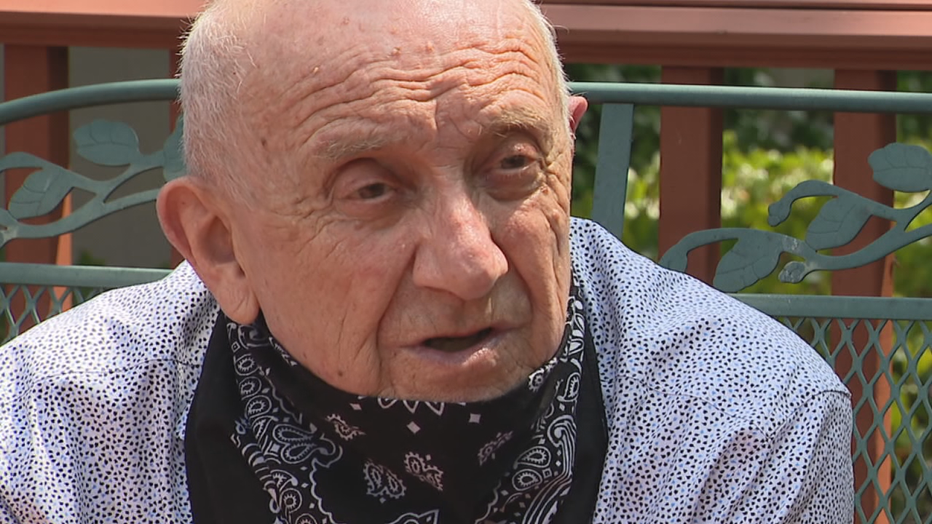
Glauben is a mourner and a storyteller. He’s sharing the darkest chapter of his life – surviving the Holocaust – as much as he can.
“While we are speaking right now with modern technology, maybe the souls of my family is floating right above us and putting some of the words into my mouth of what to tell you and enhancing my vision,” he said.
This past week brought a significant anniversary for Glauben.
April 23 marked 75 years since his liberation from the Holocaust, but once again, his life is restricted, this time by COVID-19.
“We are right now in confinement, which kind of brings back a lot of memories,” he said.
Jori Epstein has listened to most of Glauben’s memories, and written them into a 29-chapter manuscript.
“Max was just 15 when the Nazis murdered his mom, dad, and brother,” Epstein said.
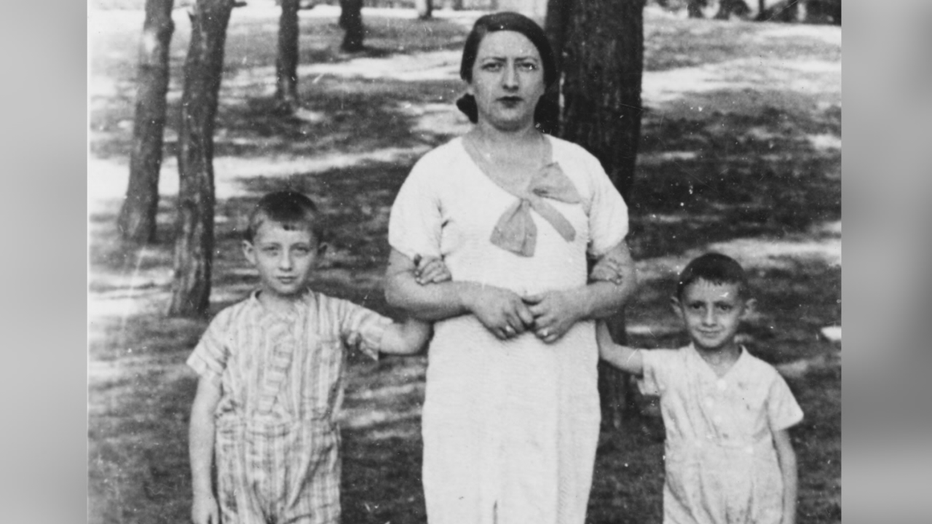
Max Glauben (left) stands with his mother Fela (center) and younger brother Heniek (right).
She’s hopeful to secure a publisher soon, so Glauben gets to see his journey shared as a book.
Right now, his story is as relevant as ever.
“His story represents that hardship makes us stronger, and the more we can figure out a way to take our challenges and turn them into strengths, the better we’ll be,” Epstein explained.
The story is available to Glauben, in color, at any time.
Closing his eyes, he flashes back to the moment his family was broken apart for the final time at a concentration camp.
“I bring back the time that we were offloaded, the box car in Majdanek, when I saw the last steps of my mom and my little brother,” Glauben recalled.
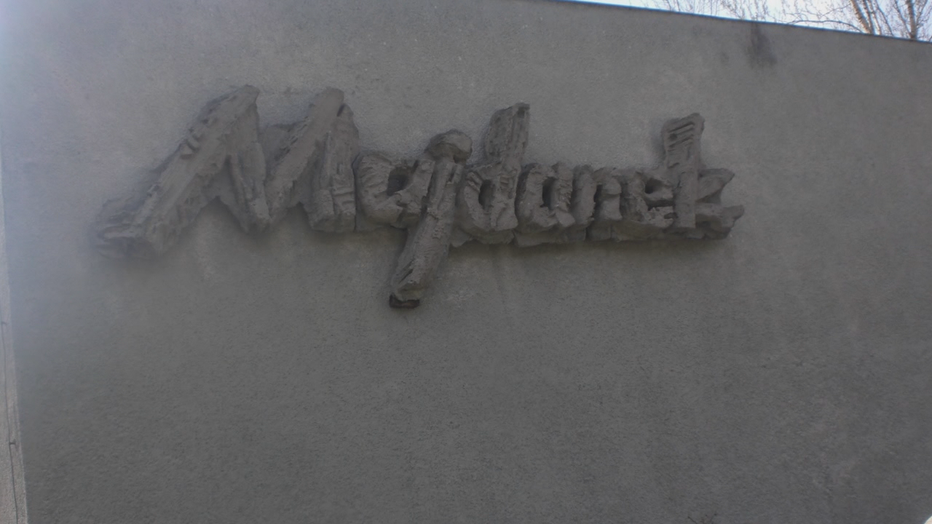
A sign at Majdanek, the concentration camp where Max's family was broken apart and his mother and brother were sent to the gas chambers.
He’s transported back to the moment he discovered his father had been murdered.
“Only his shoes were left on the spot where he lied, and I don’t know how he was killed,” he said.
“At age 15, just three weeks after his imprisonment at labor camp, he was now an orphan,” Epstein said. “Max realized the Glauben namesake now lay with him and him alone.”
A nightmare that started when he was 11 years old would take him through five different concentration camps.
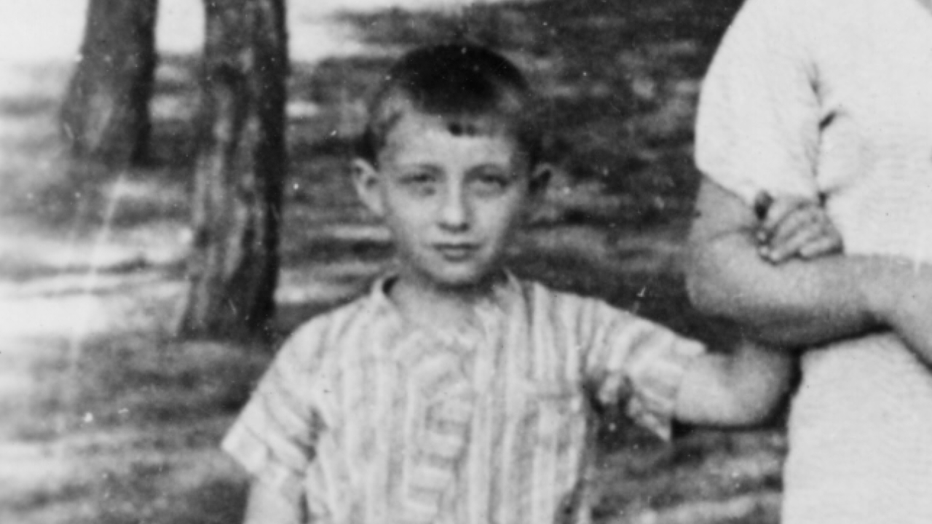
Within three weeks of the Nazis imprisoning Max in a concentration camp, his mother, father and brother were all murdered.
“In the camps, nightmares weren’t confined to bed time. ‘I would say they were dreams that were bad,’ Max said, ‘But what you got up to was worse. It was like a continuation of misery,’” Epstein said.
On April 23, 1945, Glauben realized his liberation from the Holocaust, and set out to build a new life.
“What the liberation did, out of one came 25, and replenished with goodness what was lost in the Holocaust,” Glauben said.
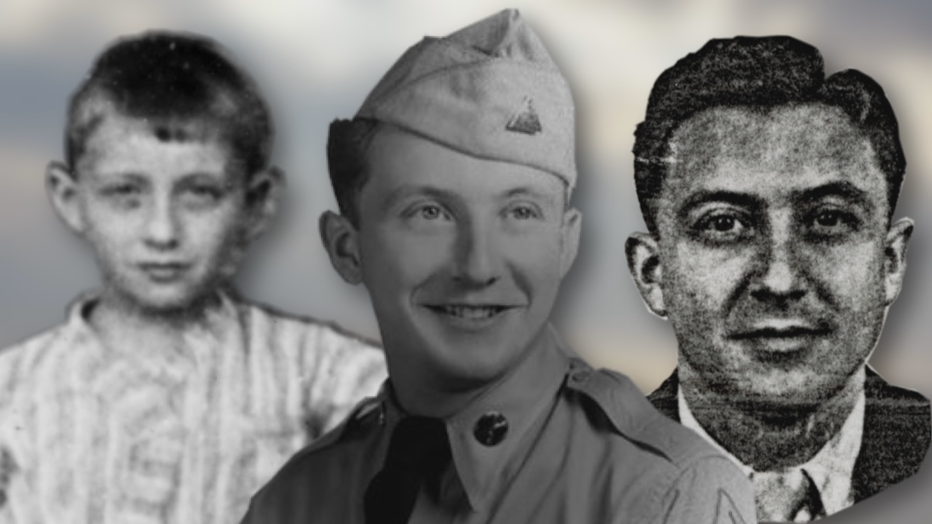
After surviving the Holocaust, Max immigrated to the United States as an orphan. He'd later serve in the U.S. Army.
Out of the nightmare, he chased after the American dream: Coming to the United States as an orphan, serving in the U.S. Army, meeting his wife Frieda, and starting a family.
The Glauben family now includes three children, seven grandchildren, and three great-grandchildren.
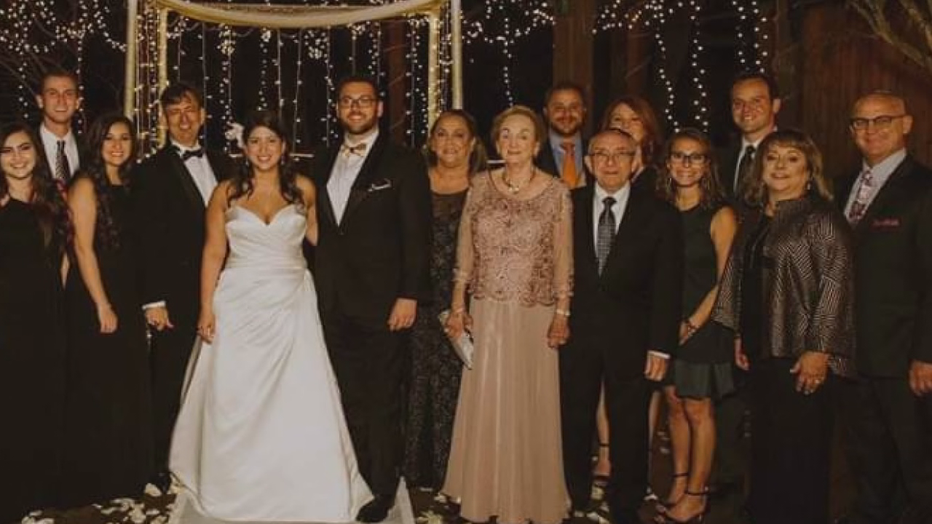
Max and his wife, Frieda, now have three children, seven grandchildren and three great-grandchildren.
And Glauben has used his second lifetime to shine light on the darkness of his first, helping launch the Dallas Holocaust and Human Rights Museum.
Inside lives a groundbreaking, interactive biography of Glauben that allows museumgoers to ask him questions about his story.
RELATED: Survivors mark the opening of new Holocaust museum in Dallas
And since 2005, he has returned to the concentration camp sites 14 times, leading March of the Living trips.
Each brings tour groups of more than 10,000 people from around the world to witness where Glauben survived the Holocaust.
Each trip, he steps back on the grounds of Majdanek, where his mother and brother were sent to the gas chambers.
Each time, he makes his way to a mausoleum that holds seven tons of human ashes and recites the Kaddish.
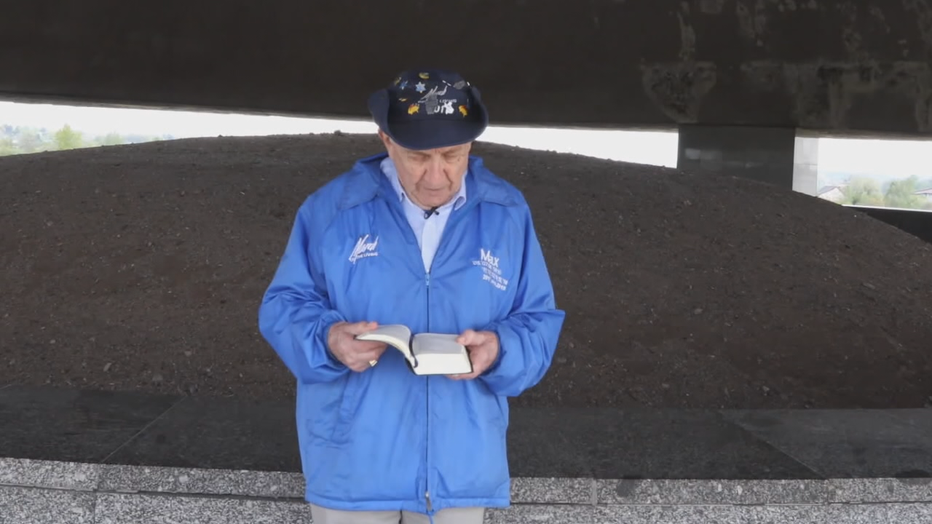
Max, reading the Kaddish in front of the seven tons of ashes at Majdanek, where his mother and brother were killed.
Courtesy: USC Shoah Foundation https://sfi.usc.edu
“Max doesn’t know whether his mom’s and brothers’ are in there or not, but they could be,” Epstein said.
“I look at the ashes, the seven tons of ashes, and I wonder how many of the owners of these ashes, how many diseases they could’ve cured,” Glauben said.
In 2019, Glauben brought his granddaughter, Hayley, to the site.
“When I first walked up and saw the ashes, it was a moment where I thought, you know, that’s my whole family there except for him,” she said. “It’s horrifying to think that had I been born 50 years earlier, that would be me in there.”
This week, Glauben was planning to spend the 75th anniversary of his liberation from the Holocaust back overseas, on his 15th March of the Living trip.
But because of the COVID-19 pandemic, the trip was canceled.
RELATED: Coronavirus coverage
On Thursday, he was expecting to spend the day at home with family, but ventured outside to find an incredible surprise.
A drive-by procession was held to celebrate him and his story of survival.
As we live through another hard and uncertain time in our history, Glauben’s advice is simple, but powerful.
After all, it comes from the ultimate survivor.
[REPORTER: “How do you move forward when you don’t see the light at the end of the tunnel?”]
“Never, never, never, never give up,” Glauben said. “Enjoy life and try to treat everybody that you are surrounded with the way you’d like to be treated.”

